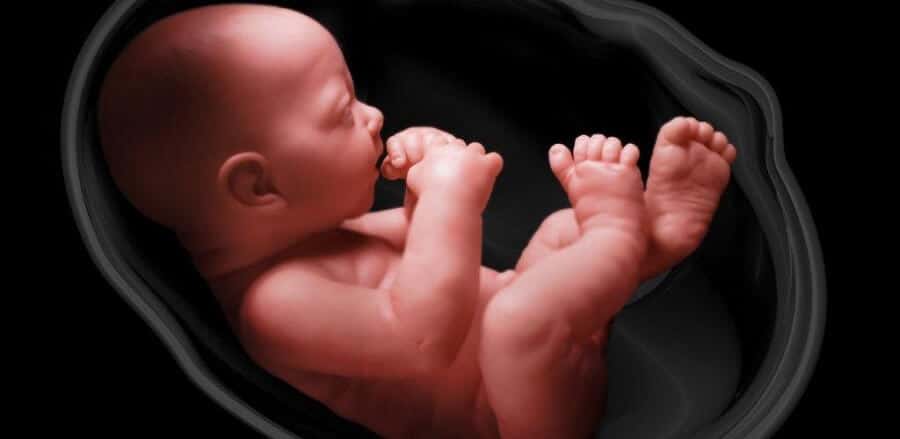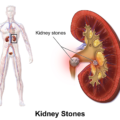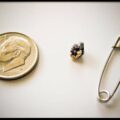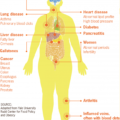If you’ve ever had to change a newborn baby’s diaper, then you’re well-aware that babies are more than capable of (some would say intent on) going number one and number two after being welcomed into the world. Still, have you ever wondered if unborn fetuses pee or poo while in the womb? Since urination and defecation are two very different human processes, this question involves two different answers. Do babies pee in the womb? Additionally, do they poo there too? We have the answers to these questions in today’s article.
Do Babies Pee in the Womb?
In a process considered one of the small miracles of life, unborn babies are able to produce urine in the later stages of the first trimester. This is around the time the embryo start being called a fetus. Unsurprisingly, unborn baby pee is very different from the typical urine that children produce once they’re outside of the womb. Fetal urine does contain small amounts of urea, but the nitrogenous waste products circulate through the mother’s body for cleanup duty.
Since fetuses don’t possess the enzymes needed to convert bile pigments into urobilin, the pee lacks its signature yellowish color. By the time the mother is about to birth the child, he or she will be consuming up to 15 ounces of amniotic fluid. This means the baby will pee on a daily basis.
What Is the Purpose of This Process?
Like all things related to childbearing and childbirth, the fact that the baby urinates in the womb has a purpose. Inside a pregnant woman’s uterus, the amniotic sac keeps the fetus safe and warm. This sac consists of water and salts that come naturally from the mother’s body. After the fourth month of pregnancy though, the little guy or gal will begin making his or her own contribution to the womb environment by urinating into the amniotic fluid.
Not only do babies pee in the womb, but they also recycle their urine. If they wouldn’t do that, the fluids would build up and lead to a dangerous condition known as polyhydramnios. This term describes an excess of amniotic fluid found in the amniotic sac. To stop this from happening, the baby learns a recycling lesson and swallows the urine. Although this sounds extremely unappealing, it’s important to remember that urine is harmless to the baby. In fact, it actually helps him or her develop the digestive and urinary tract systems in-vitro.
Do Babies Poo in the Womb?
Now that we’ve answered the question “Do babies pee in the womb?” it’s time to see whether they also defecate there. The first thing you should know is that fetal defecation in the womb is not standard. Since their intestines are barely developed, fetuses amass their wastes into a conglomerate of greenish feces that is known as meconium. Unlike the feces of older children or adults, meconium is completely sterile and odorless. Moreover, it’s stored as solid waste within the bowel.
Since fetuses don’t get proper meals in the womb, meconium forms in a very different way than our feces do. Meconium mostly contains mucus, bile, intestinal epithelial cells, and the fine body hairs known as lanugo. It also contains vernix caseosa, which is a normal sebaceous secretion that lubricates the epidermis.
Although unborn babies aren’t supposed to pass the meconium in their intestines until after delivery, pooping in the womb is not all that rare. It’s estimated that around 12 percent of fetuses just cannot help but poo before birth. Babies that fall into this percentage have meconium-stained amniotic fluid (MSAF) that has been colored yellowish or greenish from the pigments in the bile contained in the waste. This can be a source of concern. Why? Because the meconium could potentially enter the fetus’ airways. This would lead to a certain respiratory condition known as meconium aspiration syndrom. While MAS can be fatal if prolonged during post-term pregnancies, the rate of fetal death due to this condition is steadily declining in developed countries due to advanced medical treatments.
Do Babies Pee in the Womb: Summing It All Up
Do babies pee in the womb? Yes, they do, and it’s completely normal. However, while this may be normal and even healthy for a fetus, fetal defecation is an abnormal occurrence that could serve as a warning sign telling the mother and the doctor that the baby is distressed.
Image Source: here.













Hi, I do believe this is a great blog. I stumboedupon it ;) I’m going to return once again since i
have book marked it. Money and freedom iis the greatest wayy to change, may you be rich and continue to help other people.
Thanks for the information!